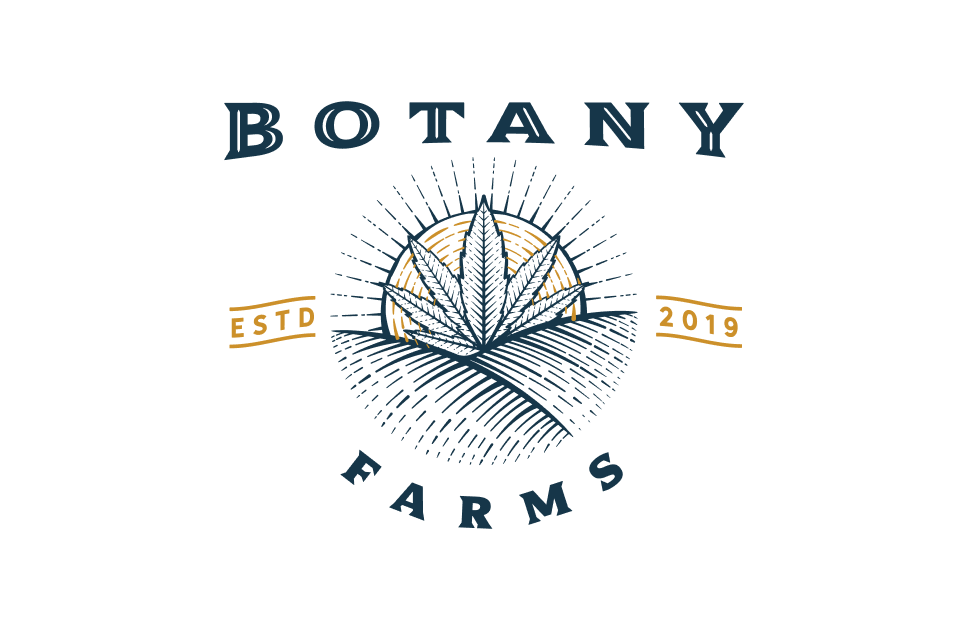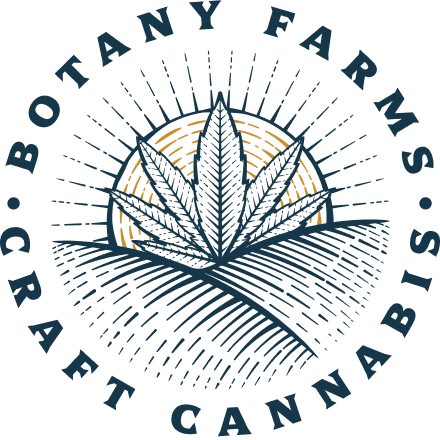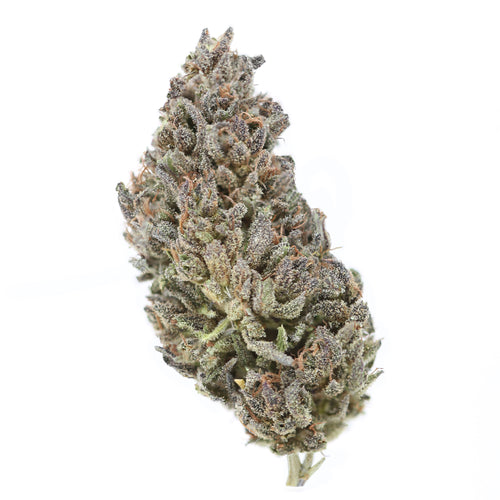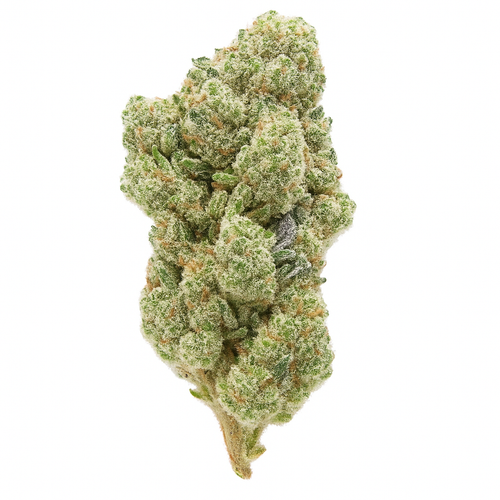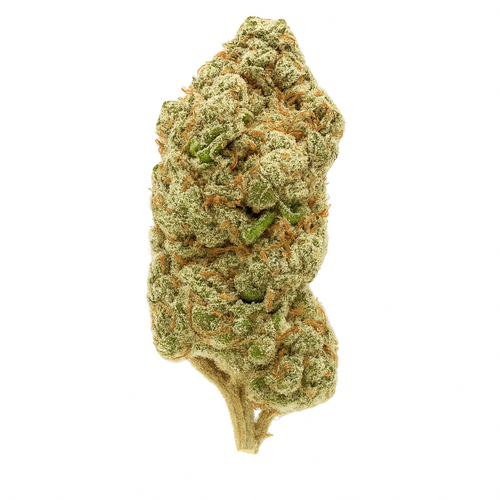THCA Flower Texas
In the sunlit fields of Texas, where horizons run wide and the scent of earth lingers in each breeze, an intricate flower quietly thrives—curious, complex, and brimming with possibility. THCA flower has emerged as a botanical centerpiece in conversations about cannabis in the Lone Star State.
Check out our Blog
Where THCA Flower Stands Legally
THCA flower is gaining traction in Texas, but behind its growing popularity is a legal framework that continues to shift. Whether you're stocking your stash or exploring plant-based relief for the first time, it's worth taking a closer look at how this hemp flower fits into both federal and state regulations.
THCA Flower and the 2018 Farm Bill
Federally, THCA flower exists in a curious middle ground. The 2018 Farm Bill redefined hemp as cannabis with no more than 0.3% Delta-9 THC by dry weight, making it legal to grow, sell, and consume across the U.S. so long as it meets that requirement.
Because THCA is non-psychoactive in its raw form, it qualifies as hemp under this rule, as long as the Delta-9 THC content remains below the threshold at the time of packaging. This detail allows farmers and brands like Botany Farms to cultivate high-quality THCA flower legally, provided they follow strict compliance protocols and lab testing.
Texas Laws on THCA Flower
Texas has adopted the Farm Bill’s definition of hemp, which allows for the sale and use of THCA flower, at least for now. But the legal climate here can feel less settled than in other states. One factor that complicates matters: when THCA is heated, it converts into THC, the compound responsible for cannabis’s psychoactive effects.
This fine line between hemp and marijuana leaves THCA flower in a space where consumer access depends on how the law is interpreted, enforced, or changed. Texans purchasing THCA flower today must do so with awareness that regulations may continue to evolve in response to policy shifts or court decisions.
Why Texas Should Stay Up to Date on THCA Policies
Recent political discussions in Texas have hinted at a growing interest in stricter hemp regulation. While no statewide bans have been passed yet, the tone of legislative sessions and enforcement changes can signal future direction. If you rely on THCA flower for stress relief, physical recovery, or evening calm, staying up to date on local policy is part of protecting that wellness routine. Pay close attention to local news, labelling standards, and testing requirements to ensure your purchases align with current law.
Why Health-Minded Texans Are Turning to THCA Flower
Across the wide, sunlit stretches of Texas, THCA flower has quietly found its way into the routines of those who take a thoughtful approach to what they consume. Rich in tetrahydrocannabinolic acid, this raw, unheated form of cannabis invites exploration for Texans seeking gentle relief.
Gentle, Non-Intoxicating Relief
THCA stands apart from traditional cannabis because of how it interacts with the body in its raw form. Without decarboxylation, it remains non-psychoactive, making it a thoughtful choice for those who want to ease into cannabis without the strong effects of THC. Whether blended into a morning juice, steeped in tea, or infused into food, THCA flower brings a soft sense of ease that complements daily routines and unwinds tension with a lighter touch.
Botanical Support for Body and Mind
Emerging research has started to echo what many longtime users have observed firsthand: THCA may help with inflammation, physical discomfort, and post-activity soreness. Texans managing stress after long commutes, physically demanding work, or restless sleep often describe a grounding calm that feels restorative. Even the flower’s green, freshly cured aroma has a way of slowing things down.
An Ode to Purity and Confidence
THCA flower, in its simplest form, delivers cannabis in a state close to how nature intended—free from synthetic additives. Every bud remains free from synthetic additives and lab-manipulated ingredients, allowing the natural structure of the plant to shine through. Whether you’re exploring cannabis for the first time or refining your routine, this flower creates space for low-pressure discovery and high-quality peace of mind.
Traceability and Assurance
Texans who value clarity in their wellness products tend to look closely at how those products are made, and THCA flower rises to that occasion. At Botany Farms, every strain comes backed by third-party testing that verifies cannabinoid content, purity, and terpene expression. This visibility transforms a curious purchase into a confident choice, especially for those building a relationship with hemp rooted in trust and transparency.
THCA vs. THC Flower: What Sets Them Apart and Why Texans Care
Before reaching for a jar, it helps to know what you’re holding. THCA and THC flowers may look alike, but their chemistry, effects, and legal footing tell two very different stories. Here's how they compare, and why it matters if you’re buying in Texas:
- Chemical Structure and Psychoactivity: THCA exists in raw cannabis flower and does not create psychoactive effects unless heated. THC, on the other hand, is the activated compound responsible for the classic cannabis “high.”
- How the Body Responds: Without decarboxylation, THCA interacts with the body in more subtle ways. Many Texans blend it into juices, tinctures, or low-temp edibles for a calm, clear experience that feels less disruptive to daily routines.
- Flavor and Aroma: Since THCA flower hasn’t been altered by heat, it tends to preserve its fresh-picked aroma—think grassy citrus, bright pine, or soft herbal notes.
- Legal Distinctions in Texas: Texas classifies THCA flower as hemp, as long as it contains less than 0.3% Delta-9 THC by dry weight at the time of testing. That legal distinction keeps THCA flower accessible for now, while traditional THC flower remains restricted.
- Flexibility in Use: THCA flower offers multiple paths depending on your preferences. You can smoke it to activate the THC, infuse it gently for wellness benefits, or use it raw for subtle support.
What to Look For When Buying THCA Flower in Texas
Finding the right THCA flower in Texas calls for a thoughtful eye and a little patience. With dispensary shelves and online collections expanding quickly, a few steady touchpoints can help you uncover flower that’s both reliable and rewarding.
- Start with origin: Seek out products grown on domestic soil, harvested and cured by skilled hands that value patience over haste. Flowers nurtured under open skies often exhibit a complexity in aroma and structure.
- Inspect with your senses: Look for vibrant hues and a trichome shimmer that hints at potency. The texture should feel neither brittle nor damp, but springy, dense, and alive to the touch.
- Demand transparency: Trust flourishes when you can trace a product’s journey. Seek out lab results for every batch—these reports should confirm that the flower is free from pesticides, fungicides, and heavy metals.
- Understand the entourage: THCA does not work in solitude. A quality flower contains a healthy spectrum of secondary cannabinoids and terpenes, each playing their part in shaping the experience, from the calming lilt of myrcene to the refreshing lift of limonene.
- Consider the cure: Flower reaches its peak when slowly dried and cured, a process that requires vigilance and time. Look for hand-trimmed buds with a preserved structure.
Ways to Enjoy THCA Flower
THCA flower carries its quiet magic, but that magic deepens depending on how it’s prepared. Each method of consumption invites a slightly different experience, shaped by the temperature, the tools, and the pace of your ritual.
Traditional Smoking
Those drawn to the familiar rhythm of combustion often reach for a pipe or rolling papers. As the flower burns, its terpenes bloom, sending notes of spice, citrus, or herbal earthiness into the air. Heat converts THCA into active THC, bringing on the familiar effects with a satisfying immediacy. For many, this approach offers a grounding ritual that brings the full character of the flower into focus.
Vaporization
Vaporization invites a softer introduction. A well-calibrated device warms the flower just enough to activate cannabinoids without burning them. This low-heat process draws out crisp, grassy tones, light citrus, or a mellow herbal finish—all while easing the experience on the lungs. Texans sensitive to smoke or simply seeking a more measured session often find vaporizing to be a balanced in-between.
Edible Infusions
Low-temperature decarboxylation turns THCA flower into a flexible ingredient for infusions. Once activated, the flower can be folded into oils, butters, or home-baked recipes. This method creates a slower build with deeper body effects—ideal for unwinding in the evening or easing into extended rest.
Tinctures and Sublinguals
By extracting cannabinoids into a carrier oil, THCA flower becomes the base for sublingual drops. Held under the tongue, these drops absorb gradually and with care. The flavor remains botanical—unmasked, earthy, and pure. For those seeking a discreet, consistent experience without the weight of smoke or edibles, this method pairs well with gentle routines.
Read more:
Frequently Asked Questions
Yes, THCA flower can be smoked in the same way as traditional cannabis flower. When heated, THCA converts into THC through a process called decarboxylation, releasing the characteristic aroma and effects familiar to seasoned cannabis enthusiasts. The rich, nuanced flavors, sometimes earthy, citrusy, or floral, unfold with each inhale.
THCA itself does not produce intoxicating effects in its raw state. However, once it’s exposed to heat (such as through smoking or vaping), THCA transforms into THC, the psychoactive compound responsible for the well-known cannabis "high." The experience that follows often depends on the strain, dosing, and your sensitivity.
As with all cannabis products, moderation and knowledge are key to a positive experience. Possible risks of using THCA flower include dry mouth, red eyes, temporary impairment, and, in higher doses, anxiety for some people. Quality and purity matter: at Botany Farms, we offer flowers that are free from pesticides, fungicides, and heavy metals, substantiated by transparent lab results.
They are distinct. THCA flower is rich in tetrahydrocannabinolic acid, while CBD flower contains high levels of cannabidiol. When heated, THCA converts to psychoactive THC, while CBD remains non-intoxicating. The differences in their chemical makeup yield unique effects, both physically and experientially.
Yes, using THCA flower can lead to the presence of THC metabolites in your body. Most standard drug tests screen for THC, so there’s a risk of a positive result.
Yes! Although THCA is non-intoxicating when raw, it can be infused into oils or used in edibles. Gently heating the flower during preparation converts THCA into active THC. Cold preparations preserve THCA’s original properties, offering a different set of experiences and potential benefits.
